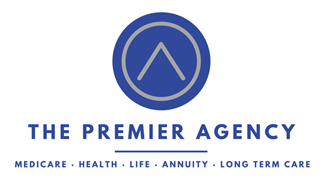Strong client relationships are crucial for success in Medicare sales. This article explores effective strategies to enhance these relationships, focusing on communication, technology, and personalized service. By implementing these approaches, Medicare agents can improve client satisfaction, retention, and overall business growth. Learn how to build trust, provide ongoing support, and leverage tools like mailing lists and APIs to create a robust marketing strategy that aligns with your budget and strengthens your brand.
Key Takeaways
- Recognize clients’ unique needs to provide personalized Medicare solutions and build trust
- Utilize technology like CRM systems and virtual meetings to enhance client engagement
- Conduct comprehensive needs assessments to tailor Medicare plans to individual circumstances
- Provide ongoing support through regular check-ins and educational workshops to maintain strong relationships
- Implement client feedback and stay updated with industry trends to improve services
1. Understanding the Significance of Strong Client Relationships in Medicare Sales

Strong client relationships are crucial in Medicare sales. This section explores recognizing Medicare clients’ unique needs, building trust through honesty, and the role of client relationships in business growth. Understanding these aspects helps agents provide better information, secure contracts, and effectively reach their target audience. By focusing on consumer needs and addressing income concerns, agents can enhance their success in Medicare sales.
Recognizing the Unique Needs of Medicare Clients
Medicare agents must recognize the unique needs of their clients to build strong relationships. These clients often face complex health insurance decisions, requiring agents to understand their specific medical requirements, financial situations, and risk tolerance. By valuing each client’s individual circumstances, agents can tailor their approach and provide more personalized insurance solutions. This client-centric focus helps agents navigate the intricate Medicare system and utilize technology to offer the most suitable coverage options.
- Understand client-specific medical needs
- Assess financial situations and risk tolerance
- Tailor insurance solutions using technology
- Navigate the Medicare system for personalized coverage
Building Trust Through Honesty and Integrity
Building trust through honesty and integrity is essential for Medicare agents to establish strong client relationships. Agents must prioritize transparency in their interactions, ensuring compliance with regulatory requirements such as the Health Insurance Portability and Accountability Act. By leveraging automation tools to maintain accurate records and protect client health information, agents can demonstrate their commitment to ethical practices. This approach not only enhances their reputation but also helps clients feel more secure in their health insurance decisions.
The Role of Client Relationships in Business Growth
Strong client relationships play a crucial role in business growth for Medicare agents. By focusing on customer experience and fostering loyalty, agents can expand their target market and increase client retention. Utilizing CRM software helps agents manage client interactions effectively, leading to improved customer satisfaction and increased referral marketing opportunities. As satisfied clients share their positive experiences, agents can attract new prospects and grow their business organically.
2. Effective Communication Strategies With Medicare Clients

Effective communication is crucial for Medicare agents to build strong client relationships. This section explores strategies including active listening, simplifying complex information, adapting communication styles, and using clear language. These approaches help agents address client concerns, manage expenses, and improve lead generation. By mastering these techniques, agents can enhance their management skills, leverage social media, and increase brand awareness in the Medicare market.
Active Listening to Address Client Concerns
Active listening is a crucial skill for Medicare agents to address client concerns effectively. By focusing on the client’s words and nonverbal cues, agents can better understand their health insurance needs and goals. This approach allows agents to tailor their solutions using CRM software, ensuring they meet each client’s specific requirements. Effective active listening also helps agents build trust and rapport, leading to stronger client relationships and improved Medicare sales outcomes.
Simplifying Complex Medicare Information
Medicare agents must simplify complex health care information to effectively communicate with clients. By breaking down intricate concepts into easily digestible pieces, agents can ensure clients understand their coverage options and make informed decisions. This approach enhances customer relationship management and builds trust, leading to improved sales outcomes. Agents can utilize social media marketing to share simplified explanations of Medicare concepts, further supporting client education and engagement:
Adapting Communication Styles for Different Clients
Medicare agents must adapt their communication styles to effectively engage different clients. When discussing Medicare Part D or Medicare Advantage plans, agents should tailor their approach based on the client’s understanding and preferences. For instance, some clients may prefer detailed explanations of payment structures, while others might respond better to simplified overviews. Independent insurance agents can use data from customer relationship management systems to identify communication preferences and adjust their strategies accordingly. This adaptability helps agents build stronger connections with clients and improve their overall effectiveness in Medicare sales.
Utilizing Clear and Concise Language
Medicare agents must use clear and concise language when communicating with clients to ensure effective understanding. Insurance agencies can improve client experience by simplifying complex terms and avoiding jargon. This approach reduces confusion and helps clients make informed decisions about their healthcare coverage. By investing in digital marketing tools that promote clear communication, agents can enhance their cost-effectiveness and client relationships:
- Use plain language to explain Medicare concepts
- Avoid industry jargon and technical terms
- Provide concise explanations of coverage options
- Utilize visual aids to support verbal explanations
3. Leveraging Technology to Enhance Client Engagement

Technology enhances client engagement in Medicare sales. CRM systems improve client management. Virtual meetings increase accessibility. Email and SMS provide timely updates. Online resources offer valuable tools. These strategies boost insurance sales, enhance knowledge, and support Medicare Advantage marketing. Agents can leverage technology to streamline processes, conduct audits, and improve client relationships.
Utilizing Customer Relationship Management (CRM) Systems
Medicare insurance agents can effectively utilize Customer Relationship Management (CRM) systems to enhance client engagement and streamline their sales strategy. CRM tools enable agents to track customer interactions, manage direct mail campaigns, and monitor the progress of Medicare Advantage plan enrollments. By centralizing client data and automating follow-ups, agents can provide more personalized service and improve their overall customer satisfaction rates.
Implementing Virtual Meetings for Accessibility
Medicare insurance agents can enhance client accessibility by implementing virtual meetings. This technology allows agents to connect with clients remotely, overcoming geographical barriers and accommodating those with mobility issues. Virtual meetings also provide an opportunity for agents to demonstrate their organization and credibility while discussing complex topics like life insurance and Medicare. By offering this convenient option, agents can better serve their clients’ needs and potentially increase their client base, all while maintaining compliance with tax regulations and industry standards.
Using Email and SMS for Timely Updates
Medicare agents can use email and SMS to provide timely updates to clients about their medical billing, life insurance, and Medicare coverage. These tools enable agents to send reminders about upcoming appointments, policy changes, or new plan options. By utilizing telephone and digital communication channels, agents can enhance their clients’ understanding of complex Medicare topics and maintain regular contact. This approach helps build stronger relationships and ensures clients stay informed about their healthcare coverage:
- Send appointment reminders via SMS
- Deliver policy updates through email
- Provide educational content about Medicare options
- Offer quick support for billing inquiries
Providing Online Resources and Tools
Medicare insurance agents can enhance client relationships by providing online resources and tools. These digital assets can include calculators for estimating Medigap costs, comparison charts for deductibles, and educational videos explaining Medicare options. By offering such tools, agents increase their productivity and potential revenue while helping clients make informed decisions. These resources also demonstrate the agent’s expertise, building trust and fostering long-term relationships with clients:
- Medigap cost calculators
- Deductible comparison charts
- Educational videos on Medicare options
- Interactive plan selection tools
4. Personalizing Services to Meet Client Needs

Personalizing services is crucial for Medicare agents to meet client needs effectively. This section explores conducting needs assessments, tailoring Medicare plans, offering customized solutions, and following up for satisfaction. These strategies help agents address individual circumstances, including Medicaid eligibility and policy options, ensuring clients receive personalized care and appropriate coverage.
Conducting Comprehensive Needs Assessments
Medicare agents can conduct comprehensive needs assessments to personalize services for their clients. By gathering detailed information about a client’s health status, financial situation, and coverage preferences, agents can identify the most suitable Medicare plans. This process involves asking targeted questions, reviewing medical history, and discussing future healthcare needs to ensure a thorough understanding of each client’s unique circumstances.
Tailoring Medicare Plans to Individual Circumstances
Medicare agents can tailor plans to individual circumstances by analyzing each client’s specific health needs, financial situation, and preferences. They consider factors such as pre-existing conditions, prescription drug requirements, and preferred healthcare providers to recommend the most suitable Medicare options. This personalized approach ensures clients receive coverage that aligns with their unique needs and budget constraints. Agents can use a comparison table to illustrate different plan options:
Offering Customized Solutions and Recommendations
Medicare agents can offer customized solutions and recommendations by analyzing each client’s unique health needs, financial situation, and preferences. They use their expertise to suggest the most suitable Medicare plans, considering factors such as prescription drug coverage, preferred healthcare providers, and potential out-of-pocket costs. This personalized approach helps clients make informed decisions about their healthcare coverage, ensuring they receive the most appropriate and cost-effective solutions for their individual circumstances.
Following Up to Ensure Satisfaction
Medicare agents should follow up with clients regularly to ensure satisfaction with their chosen plans. This process involves checking in on clients’ experiences, addressing any concerns, and making adjustments to coverage if needed. By maintaining ongoing communication, agents demonstrate their commitment to client care and can identify opportunities to provide additional support or services.
5. Providing Ongoing Support and Education

Providing ongoing support and education is crucial for Medicare agents to maintain strong client relationships. This section explores scheduling regular check-ins, keeping clients informed about policy changes, hosting educational workshops, and creating informative content. These strategies help agents ensure client satisfaction, address concerns, and provide valuable Medicare information, fostering long-term trust and loyalty.
Scheduling Regular Check-Ins With Clients
Medicare agents should schedule regular check-ins with clients to maintain strong relationships and ensure ongoing satisfaction. These periodic interactions allow agents to address any concerns, update clients on policy changes, and reassess their coverage needs as their health or financial situations may change. By proactively reaching out, agents demonstrate their commitment to client care and can identify opportunities to provide additional support or services, ultimately fostering long-term loyalty and trust.
Keeping Clients Informed About Policy Changes
Medicare agents must keep clients informed about policy changes to maintain trust and ensure clients have the most up-to-date coverage. Agents can use email newsletters, personalized letters, or phone calls to communicate changes in Medicare plans, benefits, or regulations. This proactive approach helps clients understand how changes may affect their coverage and allows them to make informed decisions about their healthcare:
- Send regular email updates on policy changes
- Mail personalized letters explaining significant updates
- Make phone calls for urgent or complex changes
- Offer virtual meetings to discuss changes in detail
Hosting Educational Workshops and Seminars
Medicare agents can host educational workshops and seminars to provide ongoing support and education to their clients. These events offer opportunities to explain complex Medicare concepts, discuss recent policy changes, and address common client concerns. By organizing informative sessions, agents can demonstrate their expertise, build trust with clients, and attract potential new customers. The following table outlines key components of effective Medicare educational workshops:
Creating Informative Content for Client Education
Medicare agents can create informative content to educate clients about Medicare plans, policies, and updates. They can develop blog posts, videos, or infographics that explain complex Medicare concepts in simple terms. This approach helps clients stay informed and make better decisions about their healthcare coverage. Agents can distribute this content through various channels, such as email newsletters, social media, or their agency website:
6. Building Long-Term Relationships for Client Retention

Building long-term relationships is crucial for client retention in Medicare sales. This section explores implementing client feedback, recognizing loyal clients, encouraging referrals, and staying updated with industry trends. These strategies help agents improve their services, show appreciation, grow their client base, and provide valuable insights, fostering lasting client relationships.
Implementing Client Feedback for Improvement
Medicare agents can implement client feedback to improve their services and build long-term relationships. By regularly collecting and analyzing feedback through surveys or personal conversations, agents can identify areas for improvement in their communication, service offerings, and overall client experience. This approach allows agents to address client concerns proactively, adapt their strategies to better meet client needs, and demonstrate their commitment to continuous improvement, ultimately fostering client loyalty and retention.
Recognizing and Appreciating Loyal Clients
Medicare agents can recognize and appreciate loyal clients to build long-term relationships. They can offer personalized thank-you notes, exclusive rewards programs, or priority service to show appreciation for client loyalty. These gestures demonstrate the agent’s commitment to their clients and can encourage continued business and referrals, ultimately strengthening the agent-client relationship and improving client retention rates.
Encouraging Client Referrals Through Exceptional Service
Medicare agents can encourage client referrals through exceptional service by consistently delivering high-quality assistance and support. By going above and beyond client expectations, agents create positive experiences that motivate satisfied clients to recommend their services to friends and family. Agents can also implement referral programs that offer incentives for successful recommendations, further encouraging clients to spread the word about their excellent service.
Staying Updated With Industry Trends to Benefit Clients
Medicare agents must stay updated with industry trends to benefit their clients effectively. By keeping abreast of changes in Medicare policies, new healthcare technologies, and emerging insurance products, agents can provide more informed guidance to their clients. This proactive approach ensures that clients receive the most current and relevant information, helping them make better decisions about their healthcare coverage and potentially saving them money in the long run.
Conclusion
Building strong client relationships is crucial for success in Medicare sales. Effective strategies include personalizing services, leveraging technology, providing ongoing education, and maintaining open communication. By implementing these approaches, Medicare agents can enhance client satisfaction, foster trust, and improve retention rates. Investing in client relationships leads to business growth, increased referrals, and long-term success in the competitive Medicare insurance market.


Recent Comments